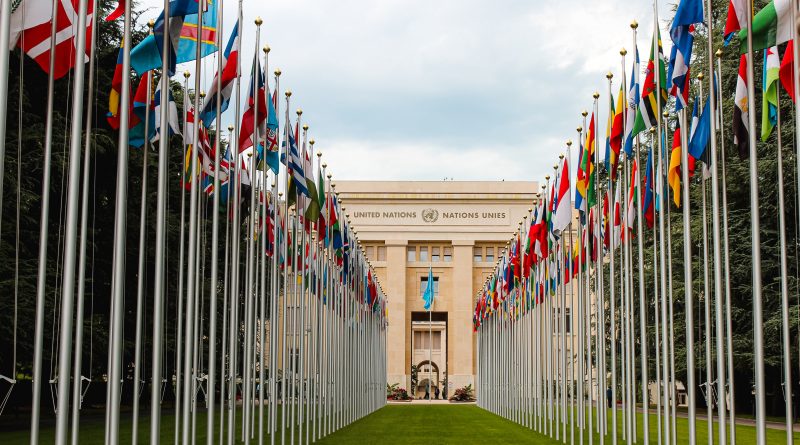FOCUS on Ukraine: Global Sanctions
Joshua Powanda
Staff Writer
Although the United States and its European allies have so far avoided direct military contact with the Russian armed forces, they have engaged in a different kind of warfare. Economic warfare has been employed to deter further Russian aggression in Ukraine and punish the regime for its illegal territorial expansion.
Following the various phases of the Russian invasion, the international community has imposed substantial short-term and long-term sanctions. Al Jazeera explains the first measures came swiftly after President Vladimir Putin announced the independence of Ukraine’s breakaway Donetsk and Luhansk regions and deployed Russian forces to the territories.
Western countries and other allies throughout the world introduced sanctions against several Russian banks, oligarchs, and other wealthy individuals. Additionally, Germany halted the Nord Stream 2 gas pipeline project, a major blow to Russian energy output and revenue.
Although these initial measures inflicted a significant dent on the Russian economy, the real damage came after Putin launched an all-out assault on the entire Ukrainian homeland. In the days following the full-scale invasion, President Biden announced the U.S. was freezing all Russian central bank assets in the U.S. This would prevent Putin from using foreign reserves to counter economic downfall and continue to finance the war.
CNN reports that the Biden Administration also sanctioned several more Russian banks, as well as Russia’s technology and aerospace sectors. These restrictions highlight the long-term consequences of the sanctions as the U.S. seeks to prevent Moscow’s ability to modernize technology and weapons industries.
Additionally, the U.S. blacklisted Vladimir Putin himself, along with Foreign Minister Sergei Lavrov and several Russian oligarchs. The direct targeting of Putin and his inner circle is something the West has previously only done on a limited scale.
According to an additional report from Al Jazeera, this move was coupled with sweeping sanctions from the European Union, Japan, Australia, New Zealand, and South Korea. Switzerland has also joined in sanctioning Russia, which is notable because of the country’s past neutrality in European conflicts.
In coordination with the U.S., the European Commission, France, Germany, Italy, the United Kingdom, and Canada announced that they would expel certain Russian banks from the Society for Worldwide Interbank Financial Telecommunication (SWIFT), a Belgian-based international transaction system used by banks. The move was meant to restrict those banks’ ability to move money around the world and slow Russian transactions.
Experts say the slew of sanctions imposed on Russia will have serious short and long-term consequences. According to CFR, the likely result of this coordinated economic warfare is “widespread economic pain in Russia, including rapid inflation and a further decline of living standards.”
There are already signs that the sanctions are beginning to take hold. The Russian central bank has doubled its interest rate to 20 percent to strengthen the declining value of the ruble.
The reasoning behind many of these measures is to put enough pressure on the Russian President and the country’s elites to force a behavior change. Despite this, such a change will likely not take place. Not only has Putin become accustomed to living under sanctions—albeit not to this degree—Russia is still receiving large amounts of revenue from its crucial energy exports.
Europe’s reliance on Russian natural gas, oil, and coal as a primary energy source means that it is difficult to completely ban such imports. Reuters reports that the EU imports up to 40% of its natural gas from Russia.
While European countries have pledged to gradually phase out Russian energy from their economies, the United States has taken unilateral action to immediately ban all imports of Russian oil, gas, and other energy. The Wall Street Journal reports that this move was possible because the U.S. imports only about 8% of its oil and gas from Russia, a reality that is strikingly different from Europe.
It remains to be seen what economic move the Biden Administration will make next. Up to this point in the conflict, however, it seems Vladimir Putin is determined to carry out his territorial expansionist goals in Ukraine, despite the cost to the Russian economy and the livelihoods of the Russian people, who are perhaps paying the greatest price for their president’s tyranny.


